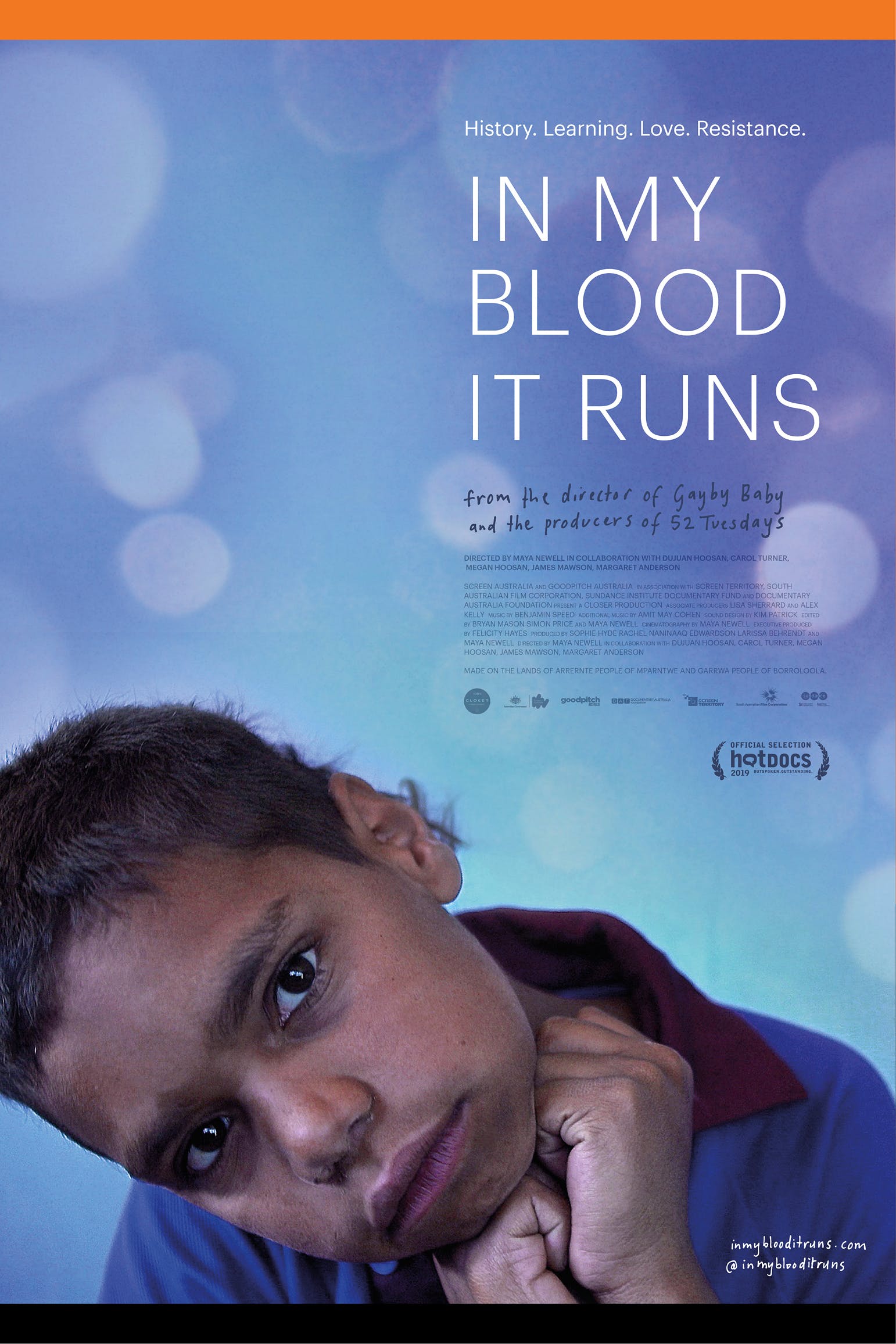Film Review: Not in anybody’s blood
Written by: Humphrey McQueen on 15 March 2020
Australian Marxist historian Humphrey McQueen raises critical questions of language and culture in this review of the film "In my blood it runs".
In my blood it runs is the title for a documentary deserving its enthusiastic reviews. It follows he ten-year old Dujuan, a healer, a hunter and tri-lingual. from around Alice Springs. Director Maya Newell reveals how, despite the best endeavours of women relatives, school shrivels Dujuan’s soul, preparing him for a life of addiction and incarceration. His resilience is rewarded when he moves north to his father’s country. Every Australian needs to watch In my blood it runs more than once.
The urgency of its content makes the choice of its title the more regrettable. In my blood it runs is anti-scientific. Nothing runs in our blood except blood. Okay, blood is only a metaphor, but it is a racist one: blood and soil; full-blood.
Many who will praise the documentary also want to make it a crime to utter hurtful words. The N-word is obviously offensive but is it more harmful than terms that perpetuate stereotypes?
The racist impress of ‘blood’ lingers as do the mythopoeics about the heart as the seat of emotions, good or bad. ‘Gene’ lacks their appeal to the lyricist. For, as Mephisto puts it: ‘Blut ist ein ganz besonder Saft.’ (‘Blood is quite a special juice.’)
Although ‘gene’ has not found its way into verse, notions of genetic determinism abound. They come with their own metaphor: ‘our brains are hardwired’ for greed, war, and all the characteristics that justify capitalism as Eternal, Natural and Universal. Yet, how many of us have wires running in our brains? ABC presenters are oxymoronic enough to tell us that ‘we are hard wired for plasticity.’
The wire metaphor descends from the telegraph, via the telephone line and the earliest computers. Seventy years after the arrival of transistors, the conventionally wise await reprogramming.
‘Out, accursed spot.’
To shine a light on the role blood does not play, follow this thought experiment. Take a male and a female Aborigine with no other heritage. Replace the blood of the man with that of a Swede and that of the woman with that of a Japanese. While that introduced blood is circulating, have them conceive a child. Who will the child look like?
Visitors to the Body section at the Melbourne Museum are invited to rotate a drum of beads. The challenge is to spot any of the three red ones that represent the determinants of skin colour among the 30 000 white ones for the rest of our genome.
The near impossibility of glimpsing even a single red bead is at odds with the readiness with which we notice skin colour itself. Less than 0.2 percent of our genome decides how we look. So much for half-caste.
More importantly, the difficulty that we have in spotting even one red bead let alone all three red beads conflicts with the assumption that physical characteristics are determinants of individual capacities and group destiny.
Genes are also used to justify gender and class discrimination. To be black, working-class and lesbian is to cope a trifecta of prejudice.
Now to a further stage of our thought experiment. Take the baby from the Aboriginal parents at birth and give it into the care of a Brazilian couple. What language will the infant grow up speaking ‘naturally’? The answer: Portuguese.
To eliminate any source of confusion, the answer would still be Portuguese were the total blood transfusions never to have happened. All it would take for a child of two Aborigines to grow up speaking Portuguese is for their child to be flown down to Rio shortly after birth. What chance then of calling Australia home?
No particular language is in our genes, let alone in our blood. What we are born with is a capacity to speak, and no more. The child in our experiment could grow up speaking Portuguese ‘Sign’ if that is what the foster parents use.
Deborah Cheetham’s ability to sing opera in several languages has nothing to do with that part of her genome inherited from an Indigenous parent. The Meme is another metaphor.
Why is it so hard for people who ‘know’ the above, to make science the basis of their popular accounts instead of reinforcing prejudice by identifying culture with blood.
Print Version - new window Email article
-----
Go back
Independence from Imperialism
People's Rights & Liberties
Community and Environment
Marxism Today
International
Articles
| Australia/Gaza: Opponents of repression face increased repression |
| Parliamentary rightists…birds of a feather, all flocking together |
| Book Review: Terraglossia |
| On May Day we celebrate First Peoples’ revolutionary potential |
| Preparing to Face a Fascist Regime From the Power of President Prabowo Subianto As the Successor of New Order |
| ICOR call for International Women's Day 2025 |
| Richard Boyle case vindictive and intimidatory |
| Adelaide Survival Day: with the masses and against the masses. |
| Melbourne rallies around Invasion Day solidarity |
| Survival Day demands decolonisation |
| Civil defence a threat to civil liberties? Well, in a word, Yes. |
| A Tale of Two Pities |
| Remain firmly opposed to Zionism, anti-Semitism and all forms of racism |
| The reactionaries must condemn all terrorism, including their own |
| Media and CFMEU Administrators threaten rank and file fightback |
| Dare to struggle, dare to win against Administrator: CFMEU Sydney Rally |
| Richard Boyle: Hero not Criminal |
| Unionists In SA Celebrate 140 Year Anniversary of United Trades and Labour Council |
| Building industry and parliamentary squabble over how best to exploit construction workers |
| Defending the CFMEU in SA |
-----

